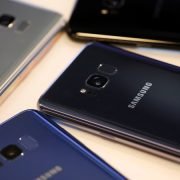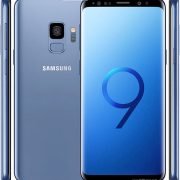Judge says Samsung ‘rigged the deck, fixed the game’ with Galaxy S4
The statement came about as a result of a long-running legal dispute between the Korean tech giant and a class action lawsuit, headed by plaintiff Daniel Norcia. Back in 2011, Norcia filed a suit against Samsung, alleging that the capabilities of the Galaxy S4 flagship phone had been grossly misrepresented, and Samsung had used this to mislead customers into thinking the phone was more powerful than competitors’ phones. Parts of the lawsuit surrounding the available storage have since been dropped, but the courts have upheld Norcia’s complaint on the processing power of the phone.
According to the accusation, Samsung coded the Galaxy S4’s software to detect when specific benchmarking software was being used, and have it commit extra resources to its operation — effectively cheating the test and providing results that could not be replicated outside of the benchmarking app by a casual user. Since these benchmarks are commonly used in third-party reviews of the device, that alleged cheating led to a false impression of superior speed being made public.
“Samsung also knew that if it artificially boosted the performance of its devices when running benchmarking apps, reviewers and the public would falsely believe that the Galaxy S4 was similarly fast in real-world situations. In reality, the processors in the Galaxy S4 run at a lower speed and the artificial performance boost disappears when the devices are performing real-world tasks instead of running benchmarking apps” states Norcia’s complaint.
Samsung had previously attempted to move the case to arbitration court by arguing the Galaxy S4’s warranty specifically forbad class actions lawsuits being brought. Unfortunately for Samsung, an appeals court dismissed this claim on the basis that warranties do not impose anything on the buyer, especially when introduced after the sale.
Speaking in a previous hearing on the case, U.S. District Judge James Donato said: “Samsung rigged the deck, fixed the game; and as a result of that, consumers were misled about the speed of the phone.”
The case is due to be heard in front of a U.S. magistrate judge next week.
![]()

 Samsung has been slammed by a federal judge for allegedly misleading consumers who purchased the
Samsung has been slammed by a federal judge for allegedly misleading consumers who purchased the 




Leave a Reply
Want to join the discussion?Feel free to contribute!